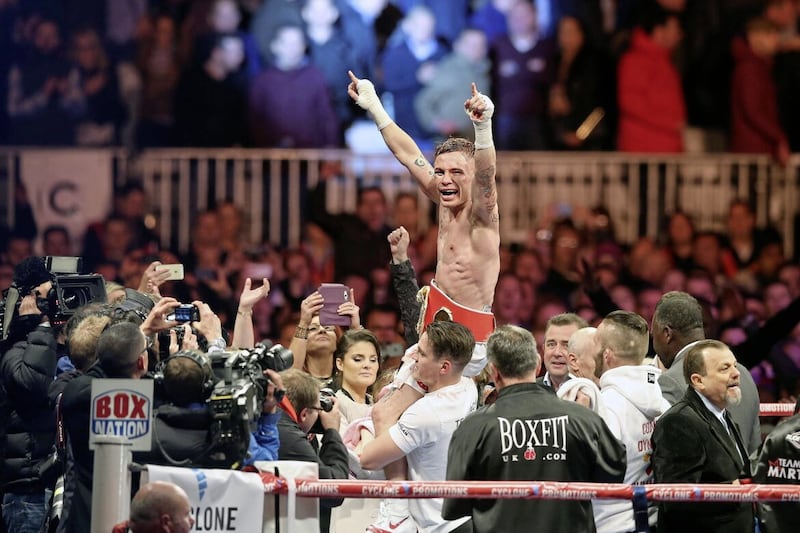JIM McGuinness was ahead of his time in a lot of ways. Tactical innovation, physical preparation, professionalising the approach - and the mindsets - of amateur players, to the point they believed anything was possible.
He also, on one famous occasion at least, banned mobile phones from the changing room.
It was three hours before Donegal’s 2011 All-Ireland semi-final date with Dublin that McGuinness gathered his squad at the Ashbourne Hotel. You remember the game. How could any of us forget?
With a 14-man behind the ball war of attrition in the offing, McGuinness was wary. Before the quarter-final against Kildare, Michael Murphy was the only one supposed to know he wasn’t starting, yet still word leaked out.
Some Donegal players were aware of the plan for the Dubs, and had been sworn to secrecy. As the moment of truth neared, McGuinness powered off his phone, popped it into a bag and instructed everyone present – backroom team, physios, even the bus driver – to do the same.
Only once they were all safely stowed away were full intentions laid bare.
On Wednesday, the morning after the glorious night before when World Cup qualification was secured, the Republic of Ireland players must have wished a black bag had been circulated before they set off for Hampden Park.
Footage of the jubilant dressing room scenes in the aftermath of victory over Scotland - and those chants of ‘ooh aah up the Ra’ during a rendition of the Wolfe Tones' Celtic Symphony - were doing the rounds from early.
A social media dogfight between the righteous and those in defence of the damned was already in full flow before some of the players had awoken from their slumber. Take the worst hangover imaginable, then double it - and there’s no paracetamol in the house either by the way.
Defender Chloe Mustaki appeared deeply uncomfortable as she faced a headmasterly inquisition from Sky Sports anchor Rob Wotton, with that exchange adding another layer of muddled mayhem to the day’s proceedings.
The fall-out that continues to rumble on has followed a depressingly predictable pattern.
Shame on them.
Sure what did they do wrong?
Throw them out of the World Cup.
What about Kyle Lafferty?
What about the Celtic supporters?
What about the Rangers supporters?
And so on, and so on. If ever there is a whataboutery World Cup, nobody else need bother showing up.
Of course we have all said and done things we regret. It might have been last week, last year, it might even have been last millennium, but you’ve done it. Don’t say you haven’t.
But what most of us haven’t experienced is the subsequent public vilification. The 12-hour period between Tuesday evening and Wednesday morning proved conclusively that the price of profile works both ways.
In those emotional moments after Tuesday night’s victory over Scotland, Milford woman Amber Barrett – who came off the bench to bag the winning goal - defied the adrenaline coursing through her veins to speak movingly about her connection to Creeslough, and the impact of the awful tragedy that befell the Donegal village last Friday.
"This is the best day of my life, in terms of a football experience, but when you put it all into perspective we don't scratch the surface of what happened there on Friday,” she said.
“This result, this game, that goal, this award, I'm dedicating it to those 10 beautiful souls, who unfortunately perished on Friday. To all their families, because I know they touched their lives. They certainly touched ours.
"This is for Creeslough, this is for Donegal, this is for Ireland."
The level of goodwill towards Barrett and her team-mates couldn’t have been any higher. A first World Cup reached after the heartache of missing out on last summer’s Euros, a team the country could truly get behind. Role models on a roll. It felt like – it was - a seminal moment.
Wednesday morning was, therefore, a wake-up call in every sense.
The majority of those players are privileged to have been brought up in a time of relative peace on this island, and while the words sang in the bowels of Hampden Park may mean little or nothing to them, for plenty of others they do.
It is not in our gift to decree definitively what people should or should not be offended by, in the same way our response to such incidents – of which this is not the first, and almost certainly not the last - does not always need to be black or white.
Those celebrations were not intended for general consumption but, since entering the public domain, all associated have had to deal with the consequences. The apology from the FAI was swift and sincere.
Staying abreast of the peculiarities of Irish cultural warfare may be out on the fringes of Vera Pauw’s remit, but the Irish manager struck the right tone when facing the media. No sugar-coating. No excuses. No bullshit.
“It doesn’t matter if the players meant anything or not, because of the celebrations… that doesn’t mean they should not be realising what they are doing,” said the Dutchwoman.
“It is also not to put it on social media or not, if it is in a private room it should not happen either because of having respect for everybody, respect for history. Your freedom ends where you go into the freedom of somebody else.
“We’ve hurt people, and we are deeply sorry for that.”
They have hurt themselves too.
Instead of savouring their finest hour, the Republic of Ireland players find themselves at the centre of a storm for which they can have no-one else to blame. Hopefully they learn from this. Hopefully we all do.









